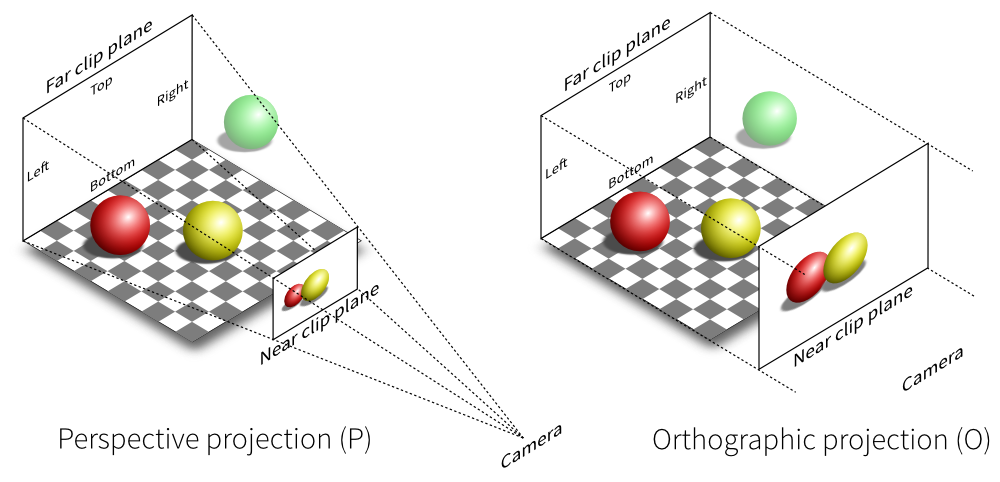1
2
3
4
5
6
7
8
9
10
11
12
13
14
15
16
17
18
19
20
21
22
23
24
25
26
27
28
29
30
31
32
33
34
35
36
37
38
39
40
41
42
43
44
45
46
47
48
49
50
51
52
53
54
55
56
57
58
59
60
61
62
63
64
65
66
67
68
69
70
71
72
73
74
75
76
77
78
79
80
81
82
83
84
85
86
87
88
89
90
91
92
93
94
95
96
97
98
99
100
101
102
103
104
105
106
107
108
109
110
111
112
113
114
115
116
117
118
119
120
121
122
123
124
125
126
127
128
129
130
131
132
133
134
135
136
137
138
139
140
141
142
143
144
145
146
147
148
149
150
151
152
153
154
155
156
157
158
159
160
161
162
163
164
165
166
167
168
169
170
171
172
173
174
175
176
177
178
179
180
181
182
183
184
185
186
187
188
189
190
191
192
193
194
195
196
197
198
199
200
201
202
203
204
205
206
207
208
209
210
211
212
213
214
215
216
217
218
219
220
221
222
223
224
225
226
227
228
229
230
231
232
233
234
235
236
237
238
239
240
241
242
243
| #include <bits/stdc++.h>
using i64 = long long;
using u32 = unsigned;
using u64 = unsigned long long;
using f80 = long double;
const int BUFFER_SIZE = 1 << 25 | 1;
struct InputOutputStream {
char ibuf[BUFFER_SIZE], *s;
char obuf[BUFFER_SIZE], *oh;
InputOutputStream() : s(ibuf), oh(obuf) {
ibuf[fread(ibuf, 1, BUFFER_SIZE, stdin)] = '\0';
}
~InputOutputStream() { fwrite(obuf, 1, oh - obuf, stdout); }
template <typename T>
inline InputOutputStream &operator>>(T &x) {
while (!isdigit(*s)) s++;
for (x = 0; isdigit(*s); s++) x = x * 10 + (*s ^ '0');
return *this;
}
template <typename T>
inline InputOutputStream &operator<<(T x) {
static char buf[13];
register char *top = buf;
if (x != 0) {
for (register int t; x;) {
t = x / 10;
*top++ = x - t * 10 + 48;
x = t;
}
while (top != buf) *oh++ = *--top;
} else {
*oh++ = '0';
}
*oh++ = ' ';
return *this;
}
} io;
template <u32 mod, u32 G>
class UnsafeMod {
private:
static const int WORD_BITS = 8 * sizeof(u32);
static constexpr u32 mulInv(u32 n, int e = 6, u32 x = 1) {
return e == 0 ? x : mulInv(n, e - 1, x * (2 - x * n));
}
public:
static constexpr u32 inv = mulInv(mod);
static constexpr u32 r2 = -u64(mod) % mod;
static constexpr int level = __builtin_ctzll(mod - 1);
static_assert(inv * mod == 1, "invalid 1/M modulo 2^@.");
UnsafeMod() {}
UnsafeMod(u32 n) : x(init(n)){};
static inline u32 modulus() { return mod; }
static inline u32 init(u32 w) { return reduce(u64(w) * r2); }
static inline u32 reduce(const u64 w) {
return u32(w >> WORD_BITS) + mod -
u32((u64(u32(w) * inv) * mod) >> WORD_BITS);
}
static inline UnsafeMod omega() {
return UnsafeMod(G).pow((mod - 1) >> level);
}
inline UnsafeMod &operator+=(const UnsafeMod &rhs) {
x += rhs.x;
return *this;
}
inline UnsafeMod &operator-=(const UnsafeMod &rhs) {
x += 3 * mod - rhs.x;
return *this;
}
inline UnsafeMod &operator*=(const UnsafeMod &rhs) {
x = reduce(u64(x) * rhs.x);
return *this;
}
inline UnsafeMod operator+(const UnsafeMod &rhs) const {
return UnsafeMod(*this) += rhs;
}
inline UnsafeMod operator-(const UnsafeMod &rhs) const {
return UnsafeMod(*this) -= rhs;
}
inline UnsafeMod operator*(const UnsafeMod &rhs) const {
return UnsafeMod(*this) *= rhs;
}
inline u32 get() const { return reduce(x) % mod; }
inline void set(u32 n) { x = n; }
inline UnsafeMod pow(u32 e) const {
UnsafeMod ret = UnsafeMod(1);
for (UnsafeMod base = *this; e; e >>= 1, base *= base)
if (e & 1) ret *= base;
return ret;
}
inline UnsafeMod inverse() const { return pow(mod - 2); }
u32 x;
};
const int MAXN = 1 << 18 | 1;
using Int = UnsafeMod<104857601, 3>;
Int f[MAXN], g[MAXN];
inline void transform(Int *f, int n, const Int *roots, const Int *iroots) {
const int logn = __builtin_ctz(n), nh = n >> 1, lv = Int::level;
const Int one = Int(1), imag = roots[lv - 2];
Int dw[lv - 1];
dw[0] = roots[lv - 3];
for (int i = 1; i < lv - 2; i++)
dw[i] = dw[i - 1] * iroots[lv - 1 - i] * roots[lv - 3 - i];
dw[lv - 2] = dw[lv - 3] * iroots[1];
if (logn & 1) {
for (int i = 0; i < nh; i++) {
Int a = f[i], b = f[i + nh];
f[i] = a + b;
f[i + nh] = a - b;
}
}
for (int e = logn & ~1; e >= 2; e -= 2) {
const int m = 1 << e, m4 = m >> 2;
Int w2 = one;
for (int i = 0; i < n; i += m) {
const Int w1 = w2 * w2, w3 = w1 * w2;
for (int j = i; j < i + m4; ++j) {
Int a0 = f[j + m4 * 0] * one, a1 = f[j + m4 * 1] * w2;
Int a2 = f[j + m4 * 2] * w1, a3 = f[j + m4 * 3] * w3;
Int t02p = a0 + a2, t13p = a1 + a3;
Int t02m = a0 - a2, t13m = (a1 - a3) * imag;
f[j + m4 * 0] = t02p + t13p;
f[j + m4 * 1] = t02p - t13p;
f[j + m4 * 2] = t02m + t13m;
f[j + m4 * 3] = t02m - t13m;
}
w2 *= dw[__builtin_ctz(~(i >> e))];
}
}
}
inline void itransform(Int *f, int n, const Int *roots, const Int *iroots) {
const int logn = __builtin_ctz(n), nh = n >> 1, lv = Int::level;
const Int one = Int(1), imag = iroots[lv - 2];
Int dw[lv - 1];
dw[0] = iroots[lv - 3];
for (int i = 1; i < lv - 2; i++)
dw[i] = dw[i - 1] * roots[lv - 1 - i] * iroots[lv - 3 - i];
dw[lv - 2] = dw[lv - 3] * roots[1];
for (int e = 2; e <= logn; e += 2) {
const int m = 1 << e, m4 = m >> 2;
Int w2 = one;
for (int i = 0; i < n; i += m) {
const Int w1 = w2 * w2, w3 = w1 * w2;
for (int j = i; j < i + m4; ++j) {
Int a0 = f[j + m4 * 0], a1 = f[j + m4 * 1];
Int a2 = f[j + m4 * 2], a3 = f[j + m4 * 3];
Int t01p = a0 + a1, t23p = a2 + a3;
Int t01m = a0 - a1, t23m = (a2 - a3) * imag;
f[j + m4 * 0] = (t01p + t23p) * one;
f[j + m4 * 2] = (t01p - t23p) * w1;
f[j + m4 * 1] = (t01m + t23m) * w2;
f[j + m4 * 3] = (t01m - t23m) * w3;
}
w2 *= dw[__builtin_ctz(~(i >> e))];
}
}
if (logn & 1) {
for (int i = 0; i < nh; i++) {
Int a = f[i], b = f[i + nh];
f[i] = a + b;
f[i + nh] = a - b;
}
}
}
inline void convolve(Int *f, int s1, Int *g, int s2, bool cyclic = false) {
const int s = cyclic ? std::max(s1, s2) : s1 + s2 - 1;
const int size = 1 << (31 - __builtin_clz(2 * s - 1));
assert(size <= (i64(1) << Int::level));
Int roots[Int::level], iroots[Int::level];
roots[0] = Int::omega();
for (int i = 1; i < Int::level; i++) roots[i] = roots[i - 1] * roots[i - 1];
iroots[0] = roots[0].inverse();
for (int i = 1; i < Int::level; i++)
iroots[i] = iroots[i - 1] * iroots[i - 1];
std::fill(f + s1, f + size, 0);
transform(f, size, roots, iroots);
const Int inv = Int(size).inverse();
if (f == g && s1 == s2) {
for (int i = 0; i < size; i++) f[i] *= f[i] * inv;
} else {
std::fill(g + s2, g + size, 0);
transform(g, size, roots, iroots);
for (int i = 0; i < size; i++) f[i] *= g[i] * inv;
}
itransform(f, size, roots, iroots);
}
inline bool force(int n, int m) {
register int l = std::__lg(n + m + 1);
if ((unsigned long long)n * m > 64ull * (1 << l) * l) return false;
static int a[100000 + 1];
static int b[100000 + 1];
for (register int i = 0; i <= n; i++) io >> a[i];
for (register int i = 0, x; i <= m; i++) {
io >> x;
for (register int j = 0; j <= n; j++) b[i + j] += x * a[j];
}
for (register int i = 0; i < n + m + 1; i++) io << b[i];
return true;
}
int main() {
int n, m;
io >> n >> m;
if (force(n, m)) return 0;
for (int i = 0, x; i <= n; i++) {
io >> x;
f[i] = x;
}
for (int i = 0, x; i <= m; i++) {
io >> x;
g[i] = x;
}
convolve(f, n + 1, g, m + 1);
for (int i = 0; i <= n + m; i++) io << f[i].get();
return 0;
}
|



